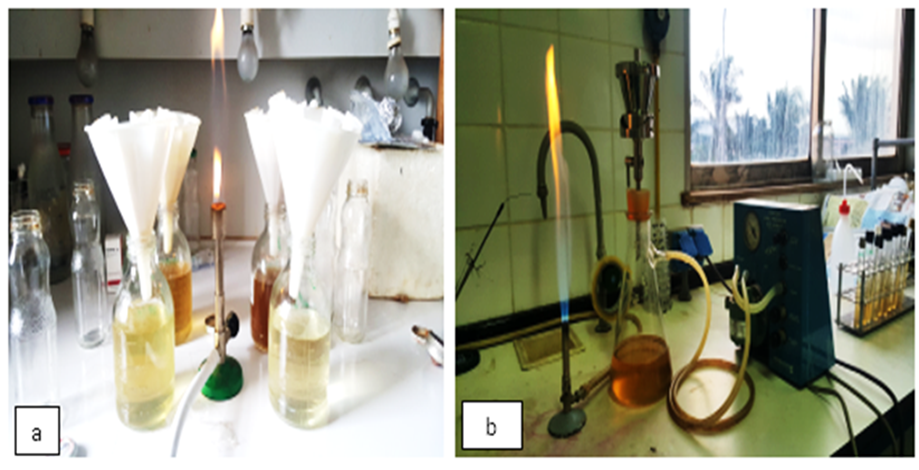Traitement Alternatif a Base Plante De L’eau Contaminée : Cas De L’activité Antimicrobienne Des Extraits Des Plantes Bidens Pilosa Et Moringa Stenopetala Sur Vibrio Cholerae Et Aeromonas Hydrophila Isolés Du Cours D’eau Olézoa, Centre Cameroun.
DOI:
https://doi.org/10.52845/currentopinion.v4i5.326Keywords:
Extraits, criblage phytochimique, antibiotique, activité antimicrobienne, Bidens pilosa, Moringa stenopetalaAbstract
The general aim of the present study is to assess the sensitivity of Bidens pilosa and Moringa stenopetala extracts to the cultivability of certain aquatic microorganisms of health importance. The B.pilosa samples were collected in Nomayos and the M.stenopetala sample in Damascus, then dried and ground respectively, before undergoing extraction by maceration.
The various extracts prepared at concentrations of 0.5; 1; 1.5 and 2 g/L and stored at incubation temperatures of 37°C and 44°C were used to determine the different antimicrobial activities by agar surface spreading and liquid microdilution methods performed on two microbial species isolated from Yaoundé environmental waters: Aeromonas hydrophila and Vibrio cholerae. Phytochemical screening revealed the presence of secondary metabolite classes such as alkaloids, polyphenols, saponosides, flavonoids and others. The different extracts showed variable activity on the aquatic microorganisms tested. The aqueous and hydroethanol extracts showed remarkable activity (100% inhibition between 9h and 24h) on B.pilosa. With regard to M.stenopetala, the hydroethanol extract showed remarkable activity against A.hydrophila, as did the aqueous extract against V.cholerae. The highest rates of inhibition of cell cultivability were recorded at an extract concentration of 2 g/l. The temperature of the medium significantly influenced bacterial inhibition (P < 0.05), with the best activity observed at 44°C. Minimum inhibitory concentrations (MICs) of the extracts ranged from 0.488 to 62.5 mg/mL. The strains tested showed some sensitivity to certain extracts. The aqueous and hydroethanol extracts of Bidens pilosa showed the best activity, with a significant bactericidal effect and MICs ranging from 0.97 to 1.95 mg/mL for A. hydrophila and from 0.488 to 62.5 mg/mL for V. cholerae. The same applies to the aqueous extract of M. stenopetala on V. cholerae (MIC=0.488mg/mL). The results obtained justify alternative use of these plants to reduce the flow of bacterial pollutants contained in drinking water and in the treatment of water-borne diseases.
Downloads

